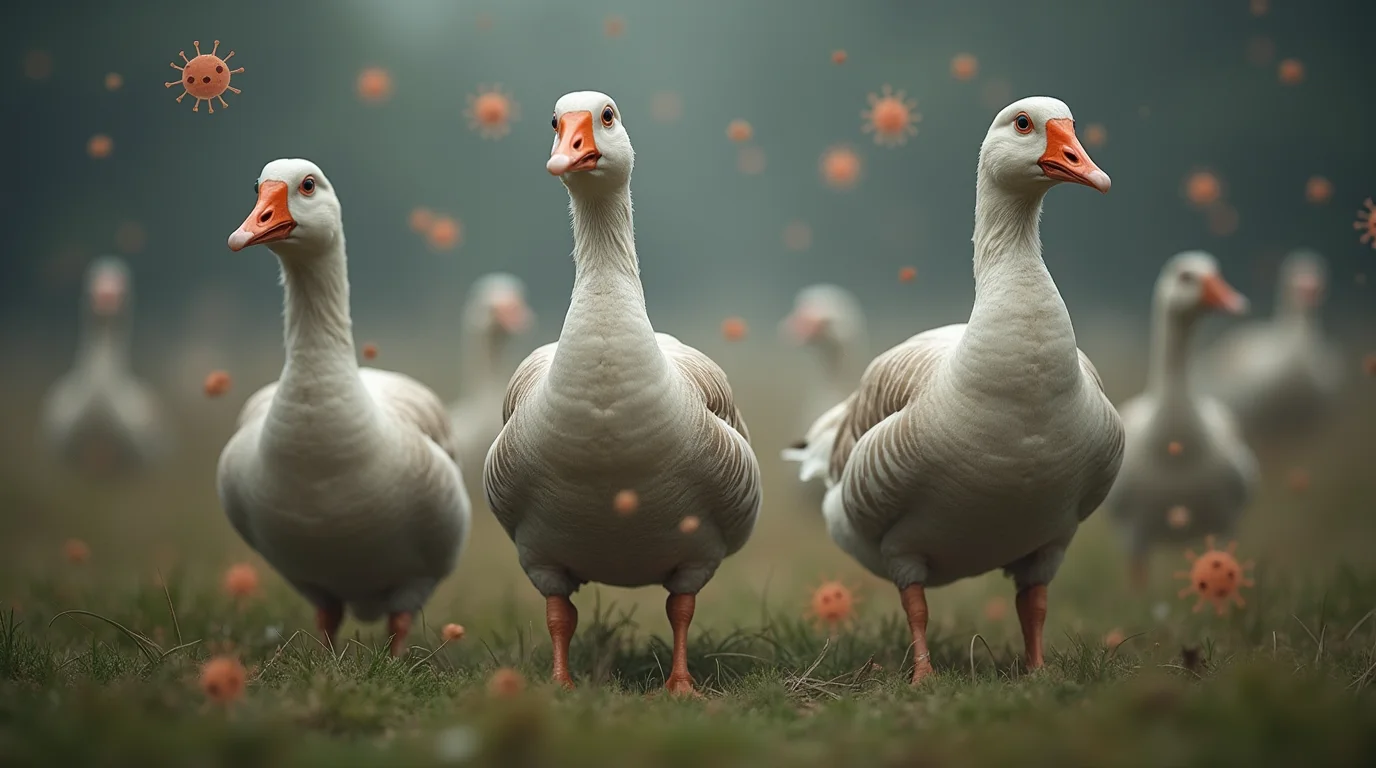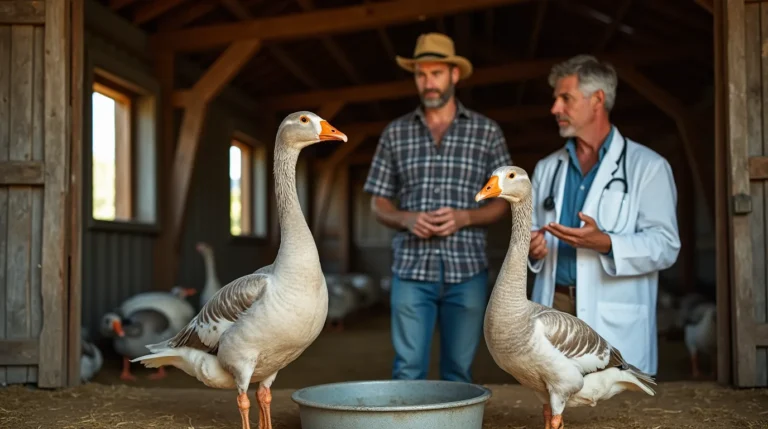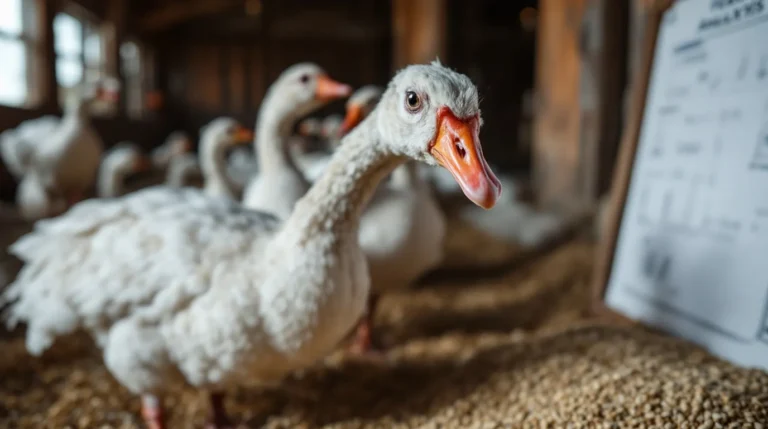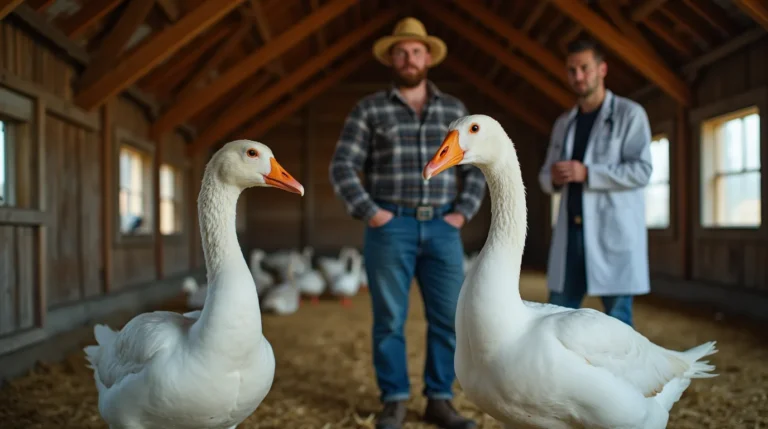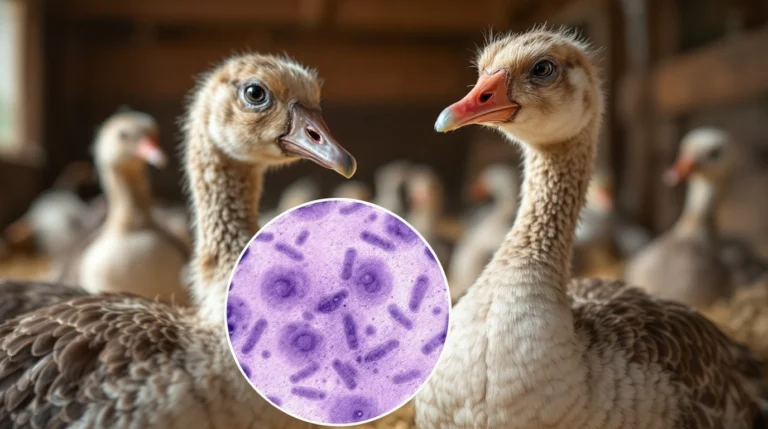Protect your geese from avian influenza in Geese , with expert prevention strategies. Learn crucial health management techniques for farm owners and veterinarians.
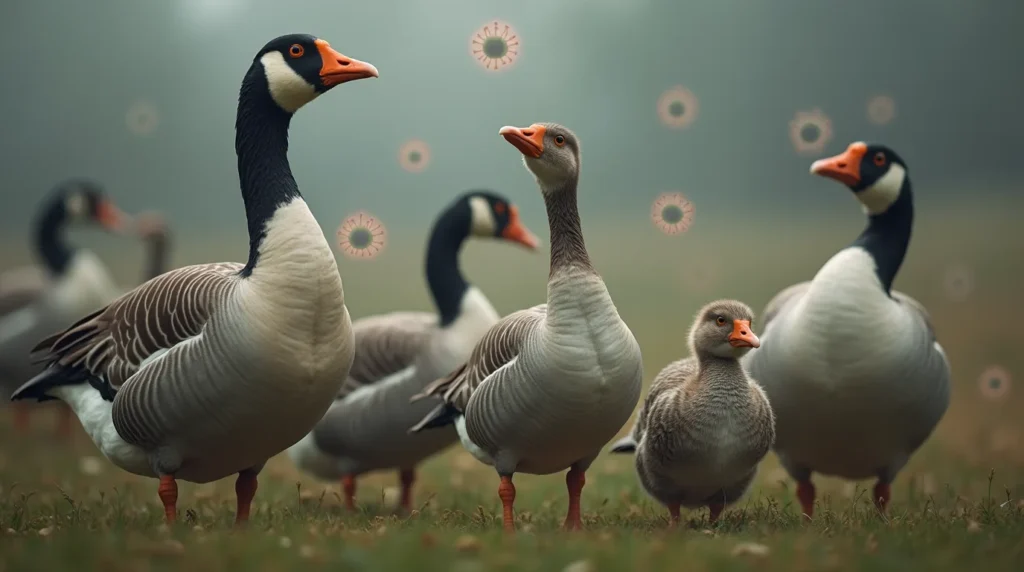
Table of Contents
Avian influenza in geese, represents a critical health challenge for geese owners, veterinarians, and agricultural professionals worldwide. This highly contagious viral infection can devastate entire flocks, causing significant economic losses and potential public health risks. Understanding the intricacies of avian influenza in geese is not just a matter of animal health—it’s a comprehensive approach to biosecurity, farm management, and preventive care.
The threat of avian influenza looms large in the poultry and waterfowl industries, with potential consequences that extend far beyond individual farm operations. Geese, known for their susceptibility to viral infections, require specialized care and proactive management strategies to mitigate the risks associated with this complex disease.
Understanding Avian Influenza in Geese
What is Avian Influenza?
Avian influenza, commonly referred to as bird flu, is a viral infection that affects multiple bird species, including geese. The virus belongs to the Orthomyxoviridae family and can be classified into two primary categories:
- Low Pathogenic Avian Influenza (LPAI)
- Mild symptoms
- Limited transmission potential
- Often goes undetected
- Highly Pathogenic Avian Influenza (HPAI)
- Severe symptoms
- Rapid spread
- High mortality rates
- Significant economic impact
Transmission Mechanisms
Geese can contract avian influenza through multiple transmission routes:
- Direct contact with infected birds
- Contaminated water sources
- Shared feeding and drinking areas
- Migratory bird interactions
- Human clothing and equipment
7 Critical Prevention Methods for Geese Owners
1. Biosecurity Protocols
Implementing Strict Biosecurity Measures
- Establish controlled access points to bird habitats
- Require mandatory disinfection stations
- Limit visitor interactions with geese
- Use dedicated clothing and footwear for bird areas
Disinfection Techniques
| Disinfection Method | Effectiveness | Frequency |
| Chlorine Solutions | High | Daily |
| Quaternary Ammonium Compounds | Very High | Weekly |
| UV Sterilization | Moderate | As Needed |
2. Quarantine Procedures
New Bird Introduction Protocols
- Isolate new geese for minimum 14-21 days
- Conduct comprehensive health screenings
- Monitor for potential infection signs
- Maintain separate housing during quarantine period
3. Vaccination Strategies
Comprehensive Vaccination Programs
- Consult veterinary professionals
- Develop tailored vaccination schedules
- Use approved avian influenza vaccines
- Maintain accurate immunization records
4. Environmental Management
Habitat Optimization
- Minimize wild bird interactions
- Secure water sources
- Maintain clean, dry living environments
- Control pest populations
5. Nutrition and Immune Support
Specialized Nutritional Approaches
- Provide balanced, high-quality feed
- Include immune-boosting supplements
- Ensure consistent hydration
- Monitor nutritional intake
6. Regular Health Monitoring
Comprehensive Health Surveillance
- Conduct routine veterinary examinations
- Implement daily health checks
- Use diagnostic testing
- Track flock health metrics
7. Professional Collaboration
Veterinary Partnership Strategies
- Establish relationships with avian health specialists
- Create emergency response plans
- Stay informed about regional disease trends
- Participate in local agricultural health networks
Recommended Health Products for Geese
Top 4 Essential Products for Goose Owners
- Advanced Poultry Disinfectant Concentrate
- Benefits: Comprehensive pathogen elimination
- Price Range: $49.99
- Key Features: Broad-spectrum effectiveness
- Avian Immune Boost Supplement
- Benefits: Enhanced immune system support
- Price Range: $34.50
- Key Features: Veterinarian-formulated nutrition
- Professional Biosecurity Kit
- Benefits: Complete farm protection package
- Price Range: $129.99
- Key Features: Includes protective gear, disinfectants
- Digital Flock Health Monitoring System
- Benefits: Real-time health tracking
- Price Range: $259.00
- Key Features: Advanced diagnostic capabilities
Frequently Asked Questions
Q1: How quickly can avian influenza spread in a goose flock?
Avian influenza can spread within hours to days, potentially infecting an entire flock rapidly.
Q2: Are humans at risk of contracting avian influenza?
While rare, human transmission is possible, particularly with HPAI strains. Always use proper protective equipment.
Q3: How often should geese be vaccinated?
Vaccination frequency depends on regional risks and veterinary recommendations. Typically, annual or bi-annual vaccinations are suggested.
Conclusion
Protecting geese from avian influenza in Geese , requires a multifaceted, proactive approach. By implementing comprehensive prevention strategies, maintaining rigorous biosecurity protocols, and collaborating with veterinary professionals, goose owners can significantly reduce disease risks.
Call to Action: Share your experiences with goose health management in the comments below! Have you implemented any unique prevention strategies?
Explore more expert poultry care guides at BlithePet
References
- World Organisation for Animal Health (OIE) Reports
- Centers for Disease Control and Prevention (CDC) Avian Influenza Guidelines
- National Animal Health Reporting Systems
Disclaimer: This article provides general guidance. Always consult with a professional veterinarian for specific health recommendations.

